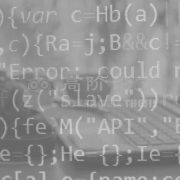新西兰政治学论文代写:互联网审查
新西兰政治学论文代写:互联网审查
为了获得中国政府的巨大努力,中国政府正在阻挠互联网,只需看看这方面的工作人员的数量。中国的网络警察部门雇佣了5万名与30万名共产党员一起工作的人。最重要的是,在私人公司里,有法律要求雇员审查自己网站的内容。由《政治科学家》(the political scientist)领导的一项研究,由Toyama(2013)所报道的加里·金(Gary King)发现,这种“利维坦”(leviathan)力量近乎完美地消除了互联网上令人反感的帖子。另一个方面发现,统治机构非常热衷于删除那些旨在煽动草根集体行动的帖子,比如中国互联网审查的示威和历史
中国人在1994年第一次接触互联网,但很快,统治阶层发现这种新媒体并不是他们喜欢的。中国的地区分裂分子利用这种新媒介煽动区域感情。从1998年开始,互联网审查制度开始在中国丑陋的抬头。2008年北京奥运会期间,中国互联网审查制度遭到削弱。但随之而来的是突尼斯的茉莉花革命,它唤醒了其他阿拉伯国家的革命。这些政治动荡主要是通过FaceBook在互联网上传播的。一些中国异见人士渴望获得更大的政治自由,从中得到启示,他们希望在中国效仿同样的模式。这让人们对建立和互联网审查制度感到不安。
新西兰政治学论文代写:互联网审查
To garner how gargantuan the efforts of the Chinese government is in thwarting the internet, one needs to just glance at the number of people employed in this effort. The internet police force in China employs 50,000 who work along with a further 300,000 communist party members. On top of this, there are employees as required by law in private firms to review their own site’s content. A study conducted under the leadership of the political scientist, Gary King as reported by Toyama (2013) found that this leviathan force was near perfect in erasing objectionable posts on the internet. Another aspect found was that the ruling establishment was really keen on removing posts that aimed at instigating grassroots collective action like demonstrations and History of Chinese internet censorship
The Chinese were first exposed to the internet in 1994, but soon the ruling establishment discovered that this new medium was not really to their liking. Regional separatists in China took to this new medium to incite regional feelings. Starting in 1998, internet censorship began to rear its ugly head in China. During the Beijing Olympics of 2008, internet censorship weakened in China. But then came along the Jasmine revolution of Tunisia bringing in its wake a host of revolutions in other Arab countries. These political upheavals were primarily caused by and spread thereon through FaceBook on the internet. Some Chinese dissidents who yearned for greater political freedom, taking a cue from this, hoped to emulate the same model in China. This send jitters through the establishment and internet censorship was back again in its full glory.







